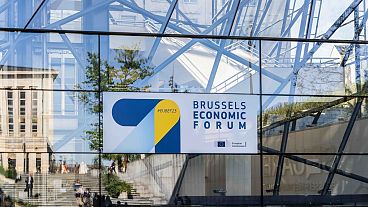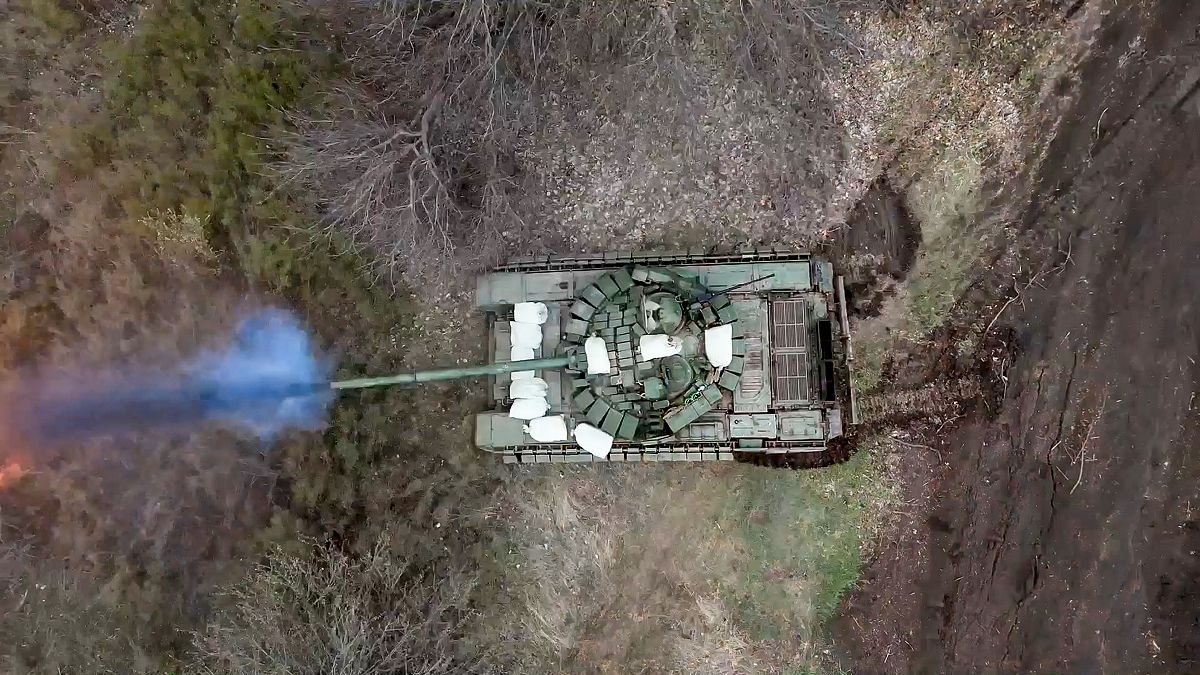Western battlefield weapons are still reaching Moscow, a study by Bruegel and the Kyiv School of Economics Institute found – but banks are wary of taking responsibility for monitoring the arms supply chain.
This week, once again, the EU is pondering strengthening sanctions it imposed on Russia for invading Ukraine – but the idea of a wider change in approach is causing jitters in the European financial sector.
EU diplomats are today (8 May) discussing a 14th package of measures to further tighten the noose, while China's leader Xi Jinping, on a visit to Europe, was urged to stop sales of arms and dual-use goods to Moscow.
With Russian President Vladimir Putin still obtaining unauthorised goods, however, some analysts wonder if it’s time for a wider shift in approach to offer banks a bigger role.
Despite Western sanctions, Russian imports of battlefield equipment have surged since mid-2022, and are now only 2% below the levels recorded before the military aggression in Ukraine, according to a 2024 analysis by the Kyiv School of Economics.
In 2023 alone, Putin's regime acquired $12.5 billion's worth of battlefield goods, 40% of which were produced by companies based in locations - including Australia, Canada, EU, Japan, Taiwan and US - where export controls are supposedly in force, according to a recent report by Brussels-based think tank Bruegel.
"You put up a sanctions regime that works half a year and then it stops working. That undermines your credibility also relative to possible future conflicts," Guntram Wolff, co-author of the report and senior fellow at the Bruegel, told Euronews.
In 2021, direct shipments from the coalition imposing sanctions accounted for more than half of Russia’s imports of war materials. While that figure fell by a factor of ten after the war, exports from mainland China more than doubled, to reach 56.3% of Moscow’s needs.
Russia used Hong Kong, Turkey and the United Arab Emirates to circumvent Western sanctions, while other countries such as Armenia, Georgia, Kazakhstan and the Kyrgyz Republic saw imports from the EU increase sharply as the bloc clamped down on Russia, the report said.
“Russia and China found ways of getting around these sanctions and finding new distribution ways, or new countries through which it can import these goods,” Wolff said.
95% of all foreign parts in Russian weapons came from manufacturers from the countries imposing sanctions on Russia, with 72% coming from US companies alone, according to the Ukrainian Agency on Corruption Prevention, citing battlefield evidence.
Those trade dynamics show that export controls aren’t preventing critical technology from reaching the Kremlin – but also that Russia can’t find good substitutes for Western high-technology goods.
“If you were to really be able to restrict Russia's access to this kind of stuff, then in fact it would have an effect on the weapon production capacity of Russia,” Wolff said.
EU banks could step in to curb the export of sensitive military equipment by monitoring trade in export-controlled goods and blocking illicit transactions, Bruegel has suggested.
"Banks, fundamentally, have access to much of the information needed to trace the trade in export-controlled goods – and the experience and resources to use it,” the report said, citing financial institutions’ existing experience in stopping money laundering and terrorist financing.
Bruegel’s paper suggested that companies should undertake a comprehensive mapping of supply chains and identification of potential 'red flags', a costly and burdensome process that won’t take place without changing the incentive structure.
“It needs to be clearly established that there is a high cost to non-compliance, and the probability of detection has to increase substantially for companies’ behaviour to change,” Wolff explained – implying hefty fines alongside rewards for compliance.
Banks say they remain committed to complying with sanctions regimes – but spotting sanctions-busting is easier said than done.
“Regulators need to understand that identifying such cases is akin to finding the needle in the haystack and that there are no systematic approaches to achieve this,” a spokesperson for the European Banking Federation told Euronews.


